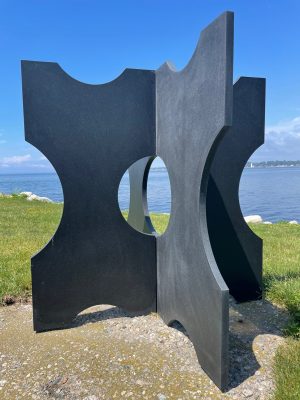
R. Douglass Rice
Solidarity
2021
About the Work
After George Floyd’s death last spring, millions of people worldwide came to together in unity to protest his death at the hands of police. Demonstrations happened all over the country demanding that the violence and killing of black people stop and that the police be held accountable for their actions. In my small town of Stonington Ct., demonstrations in support of the Black Lives Matter Movement which we attended were held weekly. At the end of June 2020, a black woman, named Crystal Caldwell, was viciously attacked, beaten, kicked, and called racial slurs by a racist couple who were staying at the motel where she was working at the front desk. The Stonington police allowed this couple to leave the state and they were finally apprehended two weeks later in NY. Hundreds of people came together demonstrating weekly to see that Ms Caldwell receive justice and that her attackers be arrested and brought to trial. Hundreds of people from all walks of life came to together to support her and her family. Her courage and these events inspired me to create sculpture to honor the BLM movement,
My sculpture, “Solidarity”, consists of two pieces of four feet square honed Absolute Black Granite slotted so that the pieces can be assembled through the slots at right angles. The Absolute Black Granite as a material is solid and strong. Each piece has arcs cut out on each side and a full circular hole in the middle. It is fabricated to honor the Black Lives Movement. The circles in the middle unite to signify a unified whole.